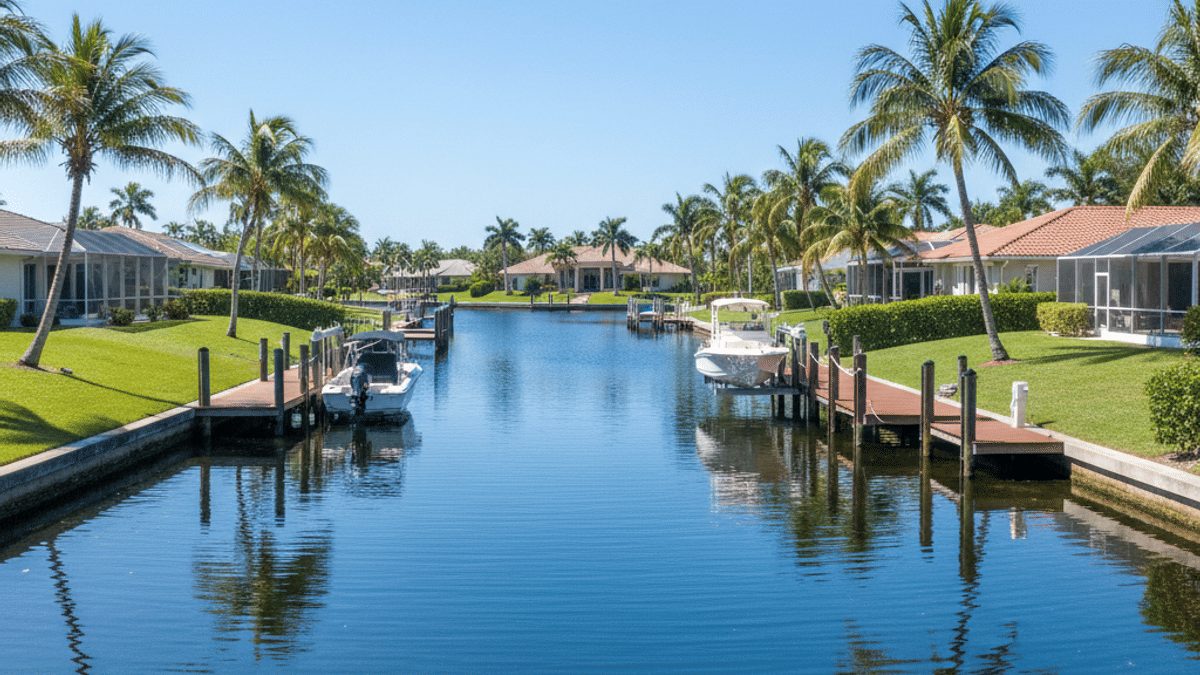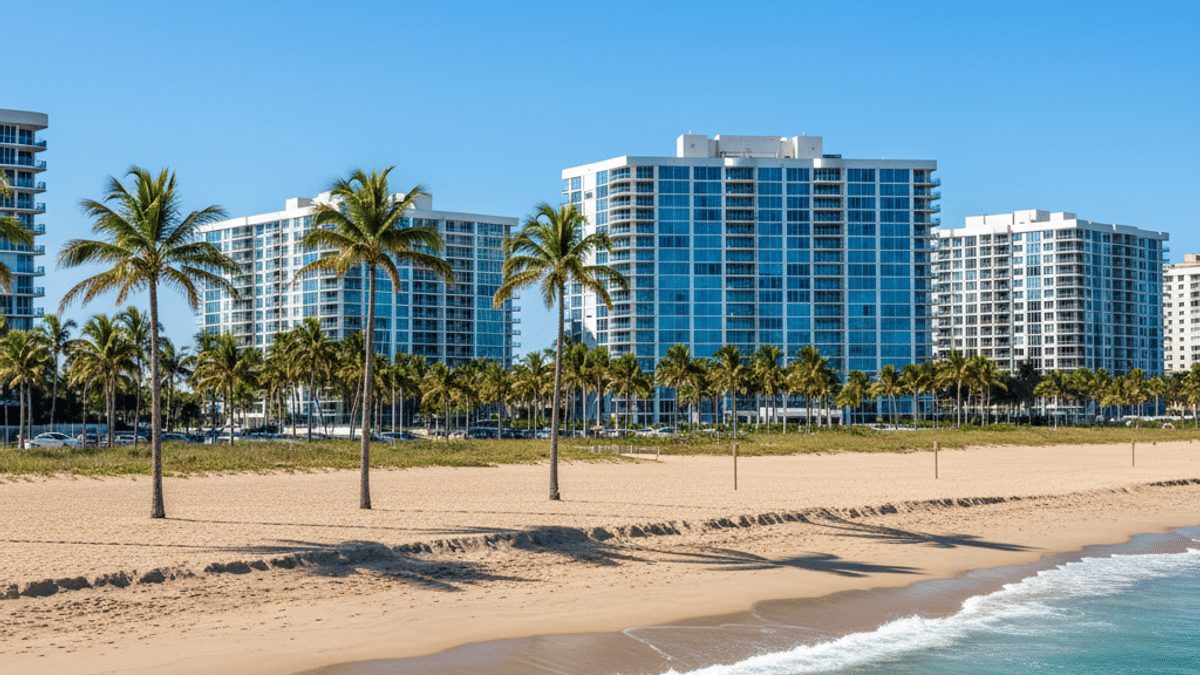So you bought a place in sunny Fort Lauderdale. Maybe it was two bedrooms near Las Olas, maybe it was a waterfront townhouse where manatees float past the dock. Either way you are now wondering, is it too soon to cash out, or should you hold the keys a little longer?
Stay with me. By the end you will know exactly how to decide, and you will see why the classic five-year rule is both a smart anchor and an optional guideline.
Why Timing Your Sale Keeps Money in Your Pocket
Real estate is part shelter, part investment. The timing question lives right where those two ideas meet.
Short version: sell at the wrong moment and the math can smack you around. Sell at the right moment and you walk into your next chapter with thicker savings, lower stress, and maybe the down payment for a bigger dream.
The market moves in mini cycles. Interest rates slide up, then down. Local inventory tightens, then loosens. Buyers stampede in January, slow down in August, roar back when snowbirds appear. A difference of six months can swing prices in Fort Lauderdale by thousands of dollars. I have watched it happen more than once.
Your own life cycle matters just as much. Do you have stable income? Will the next move force two closings at once? Do you need funds for tuition or a business launch? The calendar on your fridge has more power over your sale date than most trend graphs online.
One more thing. Holding a home longer usually means more equity. Equity is the difference between what you owe and what the place could sell for. Think of it like a savings account that grows every time you make a mortgage payment and every time prices tick upward. Sell too early and that account is thin.
The Five Year Rule and Why People Keep Bringing It Up
You have heard it on podcasts and from that friend who flips houses. Keep a place five years before selling. Where did the number come from?
A typical closing in Broward County costs roughly eight to ten percent of the sale price when you add commission, doc stamps, title fees, and moving trucks. The first few years of a mortgage payment are heavy on interest, light on principal. That means your equity grows slowly at first. At average appreciation rates for Fort Lauderdale, about four percent per year over the past decade, it usually takes four to six years before price growth and principal paydown cancel out those selling costs.
Here is the back-of-the-napkin math the five-year fans use:
- Year 1: Equity equals your down payment. Appreciation is small.
- Year 2: Mortgage balance dips a bit. Appreciation snowballs a little.
- Year 3: You start to see real movement.
- Year 4: Closing costs are almost covered.
- Year 5: Most owners can sell without writing a painful check to the closing table.
That said, guidelines are not handcuffs. If you bought pre-construction at a bargain and values spiked fifteen percent in two years, you could walk away sooner. If you bought with a tiny down payment, the smart move might be seven years.
What Fort Lauderdale Numbers Are Whispering
Let us zoom in on the city itself right now.
Median sale price: About 550,000 dollars, up roughly six percent year over year.
Days on market: Close to 45. Homes are not flying off the shelf like they did in 2021, yet they are still moving.
Active inventory: Growing, though still below the long-term average.
Seasonal rhythm: Peak buyer traffic arrives from January through April when northern residents migrate south.
Those stats tell a story. Sellers who listed during last winter’s peak often pocketed more than owners who waited for hurricane season. Timing inside the same year matters almost as much as how many years you hold.
Taxes nudge the equation too. Broward County reassesses value each year. If you have a homestead exemption your assessed value rises slowly, capped at three percent. As soon as you sell, the cap resets for the next owner. Buyers know this, so they factor tax bumps into offers. Waiting an extra season might let you hold a lower tax bill a bit longer and show extra net profit.
Interest rates add another twist. When rates fall, more buyers qualify for higher price points. We saw multiple offers galore in 2020. When rates rise, affordability tightens and bids cool. Keep an eye on the Federal Reserve calendar, not just Zillow charts.
The Price of a Quick Exit
Still tempted to grab a check after only a year or two? Let us spell out the costs.
- Real estate commission. In most cases five to six percent.
- Transfer taxes and fees. About point seven percent in Broward.
- Title policy. The seller usually buys it around one half of one percent.
- Repairs and staging. Rarely less than two thousand, often more.
- Capital gains tax. If you owned the home for less than two years you lose the federal exclusion up to 250,000 dollars of gain for singles and 500,000 for married. In Florida there is no state income tax, yet the federal bite can sting.
- Moving twice. If you leave quickly then buy again, you pay closing costs on the next purchase as well.
Add it up. A 550,000 dollar home could cost upward of 40,000 to 45,000 to unload in year two, not counting any tax on the gain. If you gained only 30,000 in value, your net slides negative.
That is why people talk about five years. It gives appreciation and amortization time to outrun those drag factors.
Your Checklist Before Calling the Photographer
I use this list with clients every month. Run through it and see where you stand.
- Mortgage balance. Pull your most recent statement and write down the payoff amount.
- Estimated sale price. Ask an agent for a comparative market analysis or study nearby sales on your own. Be honest.
- Equity. Subtract balance from price.
- Selling costs. Multiply price by eight percent as a rough rule.
- Desired cash in pocket. Decide what number will let you cover the next down payment, closing costs, and a cushion.
- Time owned. Less than two years means possible capital gains. Two to five years means thinner equity but an exemption. Over five years is usually the sweet spot.
- Market window. Are you listing during snowbird season, summer lull, or hurricane watching time?
- Life factors. Job change, school calendar, aging parents, even pet needs. All shape timing.
- Interest rate on current loan. If it is three percent, think hard before trading it for seven percent. You can always rent the place and hold that low rate.
- Next move strategy. Buying bigger, moving out of state, investing in a duplex. The plan for funds influences the urgency to sell.
If the math lines up and the calendar feels kind, you have your green light.
Ready To Talk Strategy?
You now know the bones of the timing puzzle. The five-year rule exists for a reason. Fort Lauderdale appreciation trends run just strong enough to cover selling costs right around that mark. Local taxes, interest rate moves, and seasonal demand add extra layers.
Still every address, every family, every spreadsheet looks different. Want a second set of eyes on your numbers? Reach out. I crunch equity projections for free. We will pin down exactly how long you should own a home before selling Fort Lauderdale property, and we will build a step-by-step plan that sets you up for the next big thing.
All you need is an afternoon and a willingness to look at the real figures. Let us cut through the noise and get you moving on your terms.













